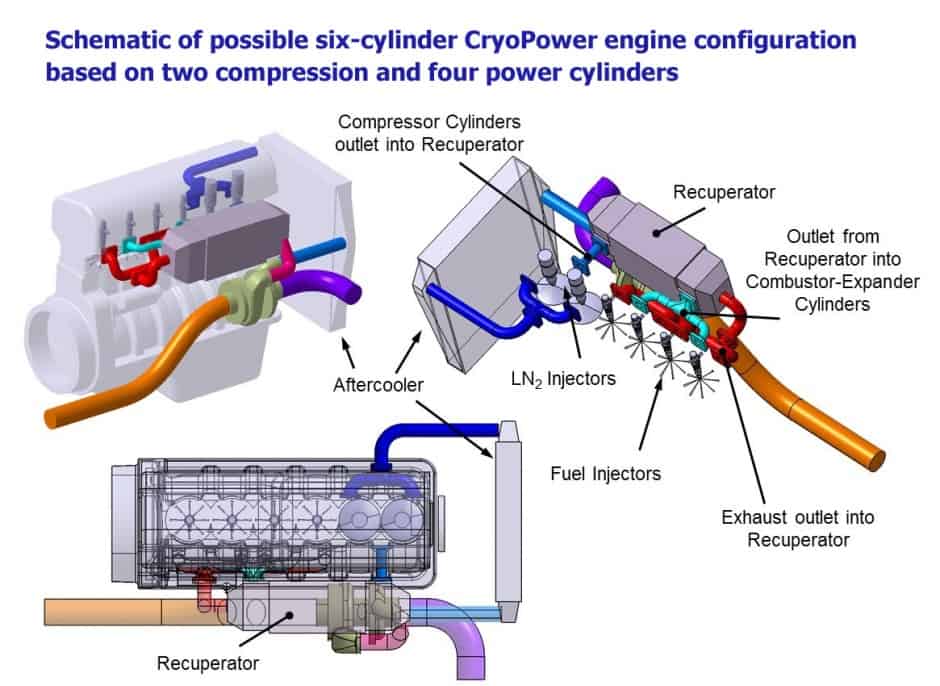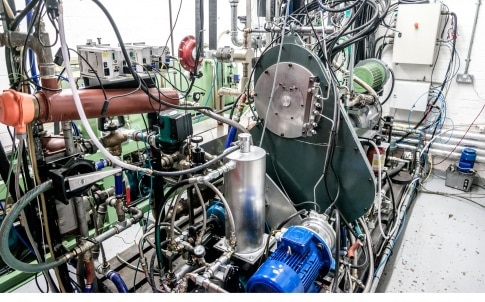
Ricardo, which has been developing the technology for the past ten years, estimates that in heavy truck applications its CryoPower technology would provide potential operator savings of approximately £9,000 ($12,500) per year for each vehicle, or £180,000 ($250,000) per MW in a distributed power generation application. The technology will now be further developed by spin-out company Dolphin N2, which is looking for additional investment to fund a full demonstration and take the technology through to production.
According to Ricardo, the CryoPower concept uses a split-cycle engine to enable significantly improved internal thermal efficiency in comparison with today’s advanced engines.
It is based on the use of a separate induction and compression cylinder from that used for combustion and exhaust. This enables recovery of otherwise wasted exhaust heat to the working gas after the end of compression.
The compression process is carried out isothermally, cooled via the injection of a small amount of liquid nitrogen. The liquid nitrogen is thus both a coolant and an additional energy vector, which offsets some of the fuel requirement. The combustion process utilises either renewable or traditional fuels, liquid or gaseous, and delivers heat energy back to the chilled and compressed intake air.
However, according to Ricardo its most important benefit is that it enables otherwise unachievable improvements in fuel economy, reduced CO2 and other emissions through improved internal thermal efficiency.

CryoPower requires liquid nitrogen to operate, with a usage and refilling requirement broadly in line with that of the fuel used to power the vehicle. The company claims that with liquefied nitrogen already routinely and economically produced by the industrial gases industry it would be comparatively straightforward to develop an expanded supply chain for liquid nitrogen.
Ricardo claims that the technology offers the perfect for improving the efficiency of long distance freight, where hybrid electric solutions are less attractive, and the conventional four-stroke diesel engine remains the power plant of choice.
“CryoPower is a potentially game-changing, commercially and environmentally attractive technology whose time really has come,” said Simon Brewster, CEO of Dolphin N2. “The development of the conventional heavy-duty engine is reaching the point of diminishing returns with regard to fuel efficiency and CO2; to go significantly beyond the current state of the art requires a completely new approach. CryoPower offers a step-change improvement in both fuel efficiency and operating fuel cost.”





JLR teams with Allye Energy on portable battery storage
This illustrates the lengths required to operate electric vehicles in some circumstances. It is just as well few electric Range Rovers will go off...